Update:
Dear reader,
I am no longer recommending Pimsleur Thai because the program is outdated. I am now using and recommend Thaipod101 instead.
Please click here to read a review of this program.
——-
I’m a firm believer in using multiple resources to learn a language, and with good reason:
It’s no secret that those who advanced rapidly when learning to speak Thai do so because they immerse themselves in the language and draw on a variety of learning channels.
The fact is, it’s not enough to attend a lesson or two a week, watch a few YouTube videos here and there or randomly ask native speakers how you say ‘this and that'.
The reality is that you need multiple methods of immersion at your fingertips. You need to be exposed to the language on many levels.
Learning Thai is quite different to say, learning French, which, as an English speaker, I find really easy to pick up – because it's not that far removed from my native language in terms of alphabet and many similar words.
Luckily, in this digital age, we have access to courses like Pimsleur Thai that offer a comprehensive immersion experience, specialising in learning languages that aren't intuitive to the learner.
I’ve been using the Pimsleur method as part of my learning for about three years now, and I love it.
If you've not heard of the Pimsleur technique and don’t know how the system works, let me give you a quick overview, as it’s an important factor in deciding whether it's for you or not.
If you do know how it works, and just want to know whether the Thai program is worth buying, skip to the “My Experience” section.
The 4 Key Elements of the Pimsleur System
Dr. Pimsleur was one of the world’s foremost experts in applied linguistics. Essentially he was a language master, teaching French phonetics and phonemics at UCLA, and later on carrying out research on language acquisition that gave birth to the Pimsleur Language Learning Method, an approach that is based on four core principles:
1. Graduated Interval Recall
During Dr. Pimsleur’s research on memory he discovered that if learners were reminded of new words at gradually increasing intervals, each time they were reminded, they would remember longer than the time before.
And so he developed a technique called “optimal spacing”, which is designed to enable information to move from the short-term into the long-term memory.
This is really important because as you may have discovered already, often you learn a Thai word today, then when you find yourself in a situation where you want to use it, suddenly you can't recall it. This is because it hasn't transferred into the long-term memory.
2. Core Vocabulary
As you probably know from trying to remember lots of Thai phrases, trying to learn too much actually slows down the learning process. For this reason, Dr. Pimsleur’s method focuses on the mastery of a relatively limited number of words and structures at a time, giving the brain a chance to internalise each new item before moving on.
Once your brain has developed a foundation for this method and is adapting to this way of learning, adding new words and phrases becomes easy and natural because there’s a clear framework to attach them to.
3. Principle of Anticipation
Dr Pimsleur discovered that our brains are hard-wired to automatically process speech and “anticipate” a correct response, and new connections are activated whenever this automatic system is triggered.
Therefore, a core part of the Pimsleur technique focuses on systematically asking for understanding, pausing for a response, and then reinforcing the correct response. This way learning is accelerated through the activation of new neural pathways in the brain.
4. Organic Learning
Pimsleur follows an organic structure that always teaches words and phrases within the context of a conversation or exchange. This allows the brain to automatically integrate intonation, rhythm and pronunciation. This in turn helps embed words in your brain, so when you need a word, it’s there on the tip of your tongue.

My Pimsleur Thai Experience
I’ve studied a lot of Thai over the past 6 years. I’ve used different software, attended school and studied at home with my wife. So then why is it that I often get into situations where the simplest words just disappear from my memory and I can’t remember how to form a particular question?
I used to blame this on being bad at languages. I'm just not that guy who is good at exams or reading and retaining tons of information. Because of this, I almost gave up learning Thai at one point due to being disappointed with my ability – especially when I see these guys with their “I learned fluent Thai in 3 months” adverts.
But after discovering the Pimsleur technique, I began to understand why my brain worked the way it did and that I'm not bad at learning, rather often, not always, learning in the wrong way.
Once I began using the audios for the graduated interval recall, even though I knew a lot of the words already, when it came to recalling them on the spot in situations like buying stuff at the local market and engaging in general chit chat, my memory began to get far sharper.
I began to eliminate that annoying “Oh man, I know this, why can’t I remember it” syndrome and began retaining a lot more information. I adopted this technique into other areas of my study too.
For this reason, I recommend having the Pimsleur audios on your iPod/Mp3 player, so that you can immerse yourself in phrases and words you’ll be most likely to need on a day-to-day basis. Within a few days you will notice that your brain begins to recall words a lot faster.
Even though I’ve completed the course, I still go over specific lessons on a regular basis. It's usually in the gym, at the airport or when on the BTS/MRT in Bangkok.
Perhaps the most difficult thing about Thai is mastering the accent and intonation. There is no way to learn this other than to keep hearing conversations in incremental doses and internalising the sound.
In this respect, the Pimsleur audio-learning approach is extremely effective; because you internalise with the lessons and then externalise by practicing with native speakers.
+ Click here to read about Thaipod (it's better)
What You Get for Your Money
The Pimsleur ‘Thai 1' course consists of 30 lessons, plus reading material. This totals 16 hours learning. The suggested learning time is just 30-minutes a day, so while 16 hours might seem a lot, the Pimsleur approach is gentle but effective.
Over the course of 30 lessons, you’ll learn the following:
- How to have simple conversations with a near-native accent (basic).
- How to ask for and give basic directions (basic).
- How to handle basic aspects of travel (basic).
- How to confidently deal with social demands (intermediate).
- How to communicate when making plans and visiting friends (intermediate).
- How to talk about family and express opinions (intermediate).
If you can’t afford to shed out the $119 for the whole MP3 course in one go, you can buy 5 units at a time at $21.95 each.
You'll save $13 buying all the lessons in one go.
There is a CD option available for those based in the USA, but in my opinion it isn't worth it. Why pay double for the CDs when you can download and burn the audio to CD if you need it?
The Pimsleur Course Management App
This Pimsleur course management app now comes free as standard with every purchase, for iOS and Android. It wasn’t available when I bought the course but I have since downloaded it
The app is a great addition to the program. It manages and organises your learning in a way that provides a tangible way of tracking progress. In short, it compiles the lessons in a more visual and accessible way, making it more course-like.
It's really easy to use, so don't worry if you're not a tech-savvy app kinda person. Here's a few screenshots on both iOS and Android.
Is Pimsleur Thai for You?
Pimsleur Thai is an invaluable learning tool, especially if you’re new to the language.
While you might be apprehensive to lay out the cash, look at it as an investment that will pay dividends over time. Your overall experience of Thailand will go way beyond the limitations of tourist areas and bar talk and you’ll develop a greater understanding of the culture and people.
The fact is, you’ll never understand Thailand from a native perspective if you can’t understand the language, period.
So many foreigners express opinions about Thailand that Thai people simply laugh at because “they just don’t understand”.
This is why Thais appreciate it when a foreigner learns to speak Thai, because it demonstrates that they have a genuine interest in trying to understand Thailand – Thainess and everything that comes with it.
If you’re still on the fence about getting stuck into learning, ask yourself these 4 questions:
- Do you want to go beyond “Sawadee khrup” and “Sa bai dee mai khrup” and have real conversations with Thai people?
- Do you want to be more than “just another tourist” that can’t speak Thai?
- Do you want to communicate better with your Thai partner and truly get to understand her/his personality and opinions?
- Do you want to be able to understand Thai to a level where you can follow and contribute to group conversations?
If you answered “yes” to any of the above, then Pimsleur Thai will help you start to achieve the above and grasp basic Thai fast. You’ll learn a lot very quickly and won’t regret the investment once you start stringing sentences together.
UPDATE: You can now get a 10% discount coupon for future purchases when you try a free 30-minute lesson.
+ Click to read my Thaipod review, which I now recommend over Pimsleur
Last Updated on
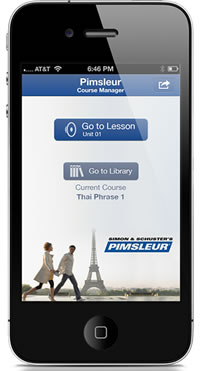
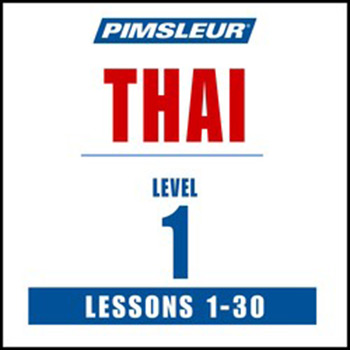
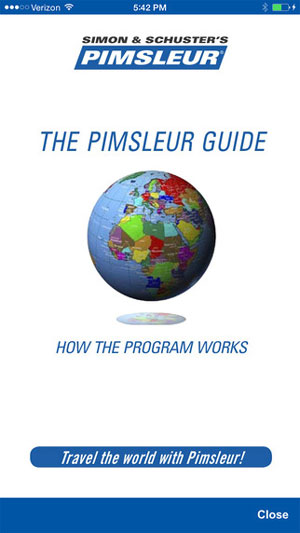
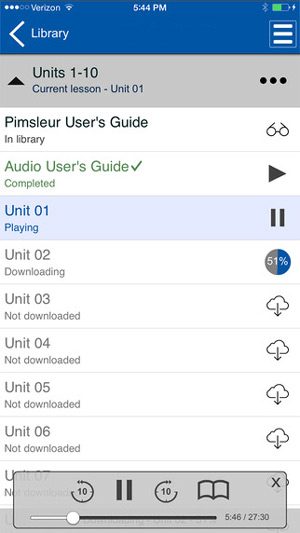
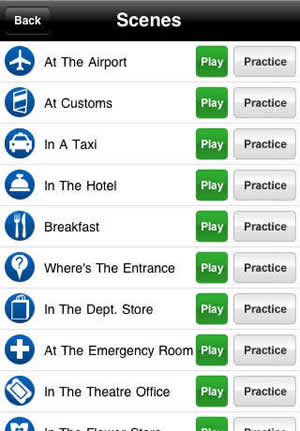


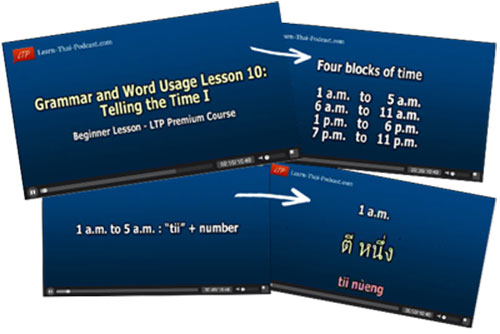

Sandy says
Oct 13, 2024 at 11:46 am
JamesE says
Oct 14, 2024 at 10:05 pm
Petter says
The Pimsleur company wrote back to me and said that he’s just speaking like a normal Thai man does. Yes, that’s fine, but it’s still way too fast for my beginning language brain.
So, I found a solution which solved the situation. I imported all of the audios into an eBook & podcast app called ‘bookmobile’, where I have slowed down the native speaker enough so I can clearly understand what he’s saying.
Apart from this, it is an excellent system that I encourage your readers to follow.
And thanks also for a wonderful blog. I have recommended it to many of my expat friends.
Jan 30, 2019 at 11:56 am
Jim Fackler says
Jan 30, 2019 at 12:44 am
Alfred says
Of much lesser important, there must be a mistake somewhere coz it seems paying in 5 parts SAVES usd 9.25.
Aug 02, 2016 at 4:04 am
TheThailandLife says
Aug 03, 2016 at 3:54 am
Jake says
Mar 18, 2016 at 11:37 am
TheThailandLife says
Mar 18, 2016 at 1:50 pm